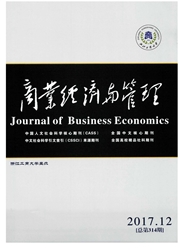

 中文摘要:
中文摘要:
肥胖是中国快速城镇化进程中的一个独特现象,对中国公共卫生和长期经济增长均有重要影响,然而其形成机理尚缺乏深入探究。文章基于收入不平等视角,利用CHNS数据分析了中国1989-2009年城镇化水平、居民收入与居民体重指数(BMI)的关系。研究发现中国居民的收入水平和肥胖之间呈倒U型关系,社区层面的收入不平等与肥胖呈正U型关系,不平等对各阶层均有不利影响,低收入阶层受到的影响更严重。城镇化水平和肥胖之间具有显著的正向关系,社区城镇化指数增加一单位,BMI增加1%;目前中国城市居民的BMI增速已经趋于平稳,农村BMI增速仍处于快速上升期;收入及其不平等对男性和农村人口的BMI影响更大,对女性和城市人口的影响相对不显著。此外文章还发现,BMI与名义收入关系很小,但是与实际购买力和消费支出结构关系较大。
 英文摘要:
英文摘要:
Increasing individual income inequality and obesity become key features in China during the rapidly urbanization period. By using cross-sectional and panel data of CHNS,this paper explores the dynamic relationship among urbanization rate,individual income and Body Mass Index( BMI) during 1991-2009 in China. We find a significant positive correlation between BMI and the level of urbanization. BMI growth rate of urban residents has leveled off while the growth rate of rural residents is still rapidly rising. We also find a U-shaped association between BMI and community-level inequality. The adverse effects of income and income inequality on BMI are more significant at male and rural residents than female and urban residents.
 同期刊论文项目
同期刊论文项目
 同项目期刊论文
同项目期刊论文
 期刊信息
期刊信息
